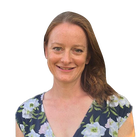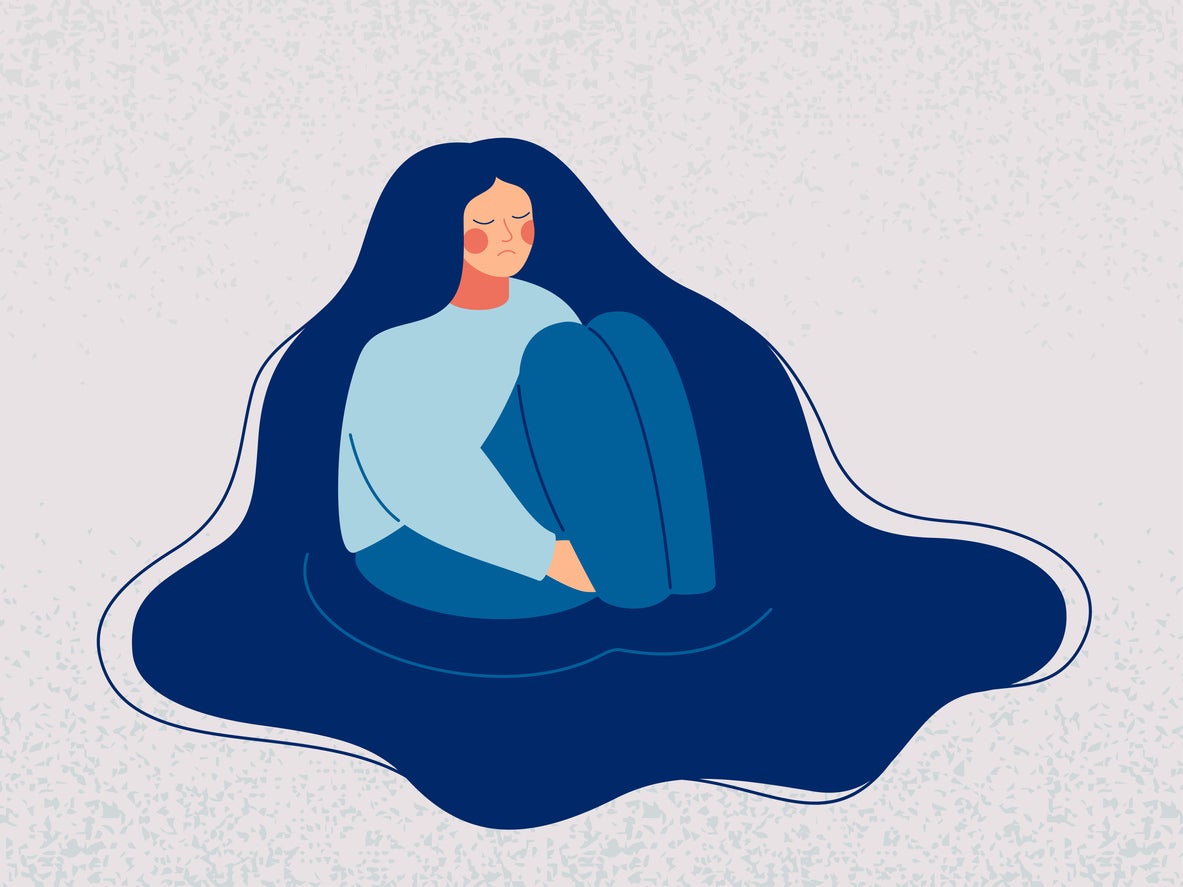In 2020 I learned you cannot measure your successes against others’ expectations
During the pandemic, I shared my story of suffering PTSD as a result of sexual assault and other traumas. I'm now helping others tackle mental health taboos in the media


If there is one thing 2020 has taught me, it’s that I have spent too much of my life measuring success by other people’s definitions.
When I was a little girl, I had big dreams. I did well at school, went to a top British university, got a graduate trainee position at an international media organisation, had the fairy tale wedding, found my way overseas to fulfil my dream of becoming a foreign correspondent.
I was quite pretty, pretty clever, clever at pleasing people, but I did not know what I needed for myself. I had become conditioned to accept achievement as the things other people expected of me, conditioned to accept I would often be judged first on my appearance over my ability, and I exhausted myself trying to keep on proving how able I was.
By my early 30s, I had worked for some of the biggest names in the media. I was a mum, a successful journalist, and had travelled the world. I had been divorced twice, raped, sexually abused in separate incidents, and experienced multiple traumas so significant they would later cause me to develop post-traumatic stress disorder (PTSD), which would nearly kill me.
For years, I suffered in silence, with symptoms and shame, scared of what might happen if I spoke out about my lived experience. I even kept the scale of my suffering from those closest to me.
In 2020, I found the words to write about my diagnosis of and ongoing recovery from PTSD, resulting from some of the traumatic experiences I survived and witnessed.
As a journalist, being able to tell my own story was something I had been conditioned against and yet after I found the words, I was approached by many people – friends and strangers – thanking me and saying what I had shared resonated with them.
I have been privileged to share aspects of my story – and I recognise that privilege because I know others still don’t feel able to speak openly. I have been fortunate to share my thoughts on what we can do better as a society and a media industry to break down the barriers to more candid conversations about mental health. But even while talking, I have recognised it can be tough to speak the kind of truth we so sorely need.
I was able to be vulnerable to an extent, and found the courage to reframe that vulnerability as strength, even when it was painful to do so. And yet, still, there were some things I was unable to share, some truths too hard to bear and bare. I became adept at giving advice, of talking the talk, and doing so eloquently because this is what I do.
To an extent, I was coping OK. I tried to find a clear delineation between balancing work and home life, supported by the fact my husband was not working, though that increased the financial pressures on me as the breadwinner.
I tried not to worry too much about what I could not control, to recognise when I needed to step back from social media, something that can be anathema to our journalism calling. I tried to recognise my privilege – that I was physically healthy, had my family near me, and had paid employment.
I kept on running throughout lockdown, recognising the importance of exercise for my mental health, but sometimes ran too hard and too far. I started writing down my experiences, prompted by therapy sessions where I felt unable to verbally relive my traumas in potential earshot of my family, and over the months, I built up thousands of words of memoir as I pieced together my past.
But I still struggled sometimes and was less able to share the darker times. It felt a little like airing my dirty laundry. So, I didn’t talk much about how I found myself avoiding things that triggered my PTSD. In the early stages of the pandemic being able to avoid enclosed spaces like public transport, public bathrooms and hotel lifts, staying clear of crowds, served me well – because each had the potential to remind me of past traumas. They were also part and parcel of me staying safe in Covid-19 times, again recognising I was privileged to be able to do so.
These are avoidance behaviours I have not spoken openly about, even when discussing my PTSD. Nor have I openly admitted the fact I can count on one hand the number of times I’ve been to the shops this year. Only this month did I recognise my severe difficulty with wearing masks stems from past traumas.
And yet, earlier on in the pandemic, I had decided to share my own story of a PTSD diagnosis, and how my work in journalism safety had given me the professional understanding to see that this public health crisis was likely to impact the mental health of many journalists. In my initial piece for the Poynter Institute, I shared how my personal and professional experiences enabled me to speak about some of the taboos in our industry, and how they had taught me the importance of empathy, and what its presence and absence looked like in our journalism.
Later I spoke at conferences and on panels, gave seminars, wrote about my experiences and ultimately set up Headlines, a networked approach to conversations around mental health in the media.
But talking and writing took its toll at times, and although I recognised this, I perhaps did not take note as much as I might have. In the midst of all this, we were moving house, which in normal times would have been stressful enough. Plus, I was dealing with the strains on our family as we went through readjustments in terms of work, relationships and schooling.
And so, the year dragged on, and against a backdrop of the global pandemic at the back end of this year, I was struggling more than I was prepared to admit. I was also seeing loved ones, friends and colleagues struggle with their mental health after an unprecedented year, which has impacted us all in different ways, and changed our professional and personal lives and the ways they intersect.
It’s hard to write candidly about struggling, knowing that in doing so I admit even greater levels of vulnerability. From conversations with colleagues, I know one of the biggest barriers to speaking openly is the fear that by doing so our careers will suffer. I am not immune to this fear, especially as I know I have done some great work this year that I love and am good at: facilitating conversations, helping others share their stories, building connections, promoting empathy. But I choose to do so here because I have recently realised that I need to apply some of the advice I have been sharing this year with others, to really walk the walk as well as talking the talk.
Because the truth is, I have been living out of alignment. Until recently, success was like wearing someone else’s wardrobe. The clothes didn’t fit and no matter how hard I tried to wear them, they were not mine.
Earlier this month, I finally gifted myself the space I needed, to stop the constant forward momentum of my life, the constant goal-setting, the constant need to do and to do some more, based on what I thought others were expecting of me.
I thought about what was most important in my life and I realised I could not be there for those people and things, unless I was there for myself first.
I realised I had been missing from my list of priorities.
I cannot be a compassionate mum, wife, friend, daughter and colleague, unless I am me first. Without me, I play no role in conversations about mental health; I write no memoir; I provide no expertise and consultancy to the media industry. Without me, taking a dose of the medicine I have prescribed to friends with mental health issues or in journalism, I cannot do my best work. I simply cannot be.
It’s taken a long time to realise I need to set the measurements for my success. And those measurements begin with me.
Earlier this month, before my children finished school for the holidays, I spoke with my GP, my therapist, and finally my boss. I signed myself off work for sick leave, in order to take care of myself. And I count this as a success.
Join our commenting forum
Join thought-provoking conversations, follow other Independent readers and see their replies
Comments




Bookmark popover
Removed from bookmarks